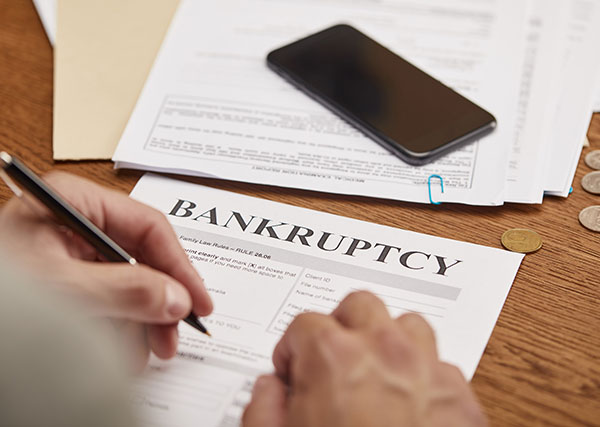How do I Get Paid After Recording a Lien - Florida Webinar
This webinar explains what happens after recording a Florida mechanic’s lien, how long you have to enforce it, and the steps needed to get paid.
Last updated:
Sep
08
,
2025
Published:
September 8, 2025
4 mins
Read
Mechanic’s liens are powerful tools for construction professionals facing payment issues but recording one doesn’t guarantee payment. It is only the first step, and knowing the timelines, enforcement rules, and possible outcomes is critical to protecting your rights.
In this blog, presented by SunRay Construction Solutions and Alex Barthet of The Barthet Firm, Florida contractors will learn what happens after recording a lien and how to turn it into payment.
What Is a Lien?
A lien is an encumbrance on real property, similar to a mortgage. It acts as a placeholder recorded either at the time of a notice of commencement or when the lien itself is filed. In essence, it puts the world on notice that the lienor (the person or company who filed it) has an interest in that property up to the amount of the lien.
Why Liens Matter
- Prevents sale or refinance – A property cannot be sold in an arm’s length transaction with a lien on title. Lenders and buyers require clear title insurance.
- Creates mortgage default – Most mortgage and construction loan agreements require the property to remain lien-free. Recording a lien can trigger a default, forcing the property owner to resolve it.
- Impacts contracts – Prime contracts and subcontracts often mandate keeping the property free of liens. A recorded lien may create a default for both contractors and subcontractors.
In short, liens disrupt ownership, financing, and contractual obligations, giving unpaid parties leverage.
.jpg)
What Happens After You Record a Lien?
Surprisingly, recording a lien doesn’t automatically trigger payment. Once filed, the lien sits in the public record. If the lien doesn’t create an immediate problem for the owner, lender, or contractor (for example, when there’s no refinancing or sale in progress), nothing happens.
This means that recording a lien is just the beginning. It’s up to the lienor to enforce it.
Enforcing a Lien: Foreclosure
To get paid, a lien must be enforced through a civil court action called foreclosure. In this process, the lienor asks the court to determine that lien laws were followed and that they hold a valid interest in the property. If successful, the property can be sold to satisfy the debt.
In addition to foreclosure, lienors may also bring related legal claims, such as:
- Unjust enrichment (the owner benefited from improvements without paying).
- Breach of contract (against the hiring party).
- Goods sold and delivered/accounts stated (for unpaid materials).
The key deadline: a foreclosure action must be filed within one year of recording the lien. This is the outer limit but you can file sooner, even within days.
.jpg)
The 60-60 Rule
Experienced construction attorneys recommend following the 60-60 rule for best results:
- Record your lien within 60 days of last work (instead of waiting until the 90-day deadline). This ensures enough time to gather paperwork, notarize, and file without rushing.
- Spend the next 60 days pursuing payment directly through calls, emails, visits, and negotiations. Many cases settle during this window.
If no payment progress is made, it’s time to escalate and involve a construction lawyer.
Three Common Scenarios After Recording a Lien
.jpg)
1. Bonding Off a Lien
One of the most common scenarios is when someone bonds off your lien. This means they replace the lien with a surety or cash bond filed with the court, usually valued at 150% of the lien amount.
Why is this good news? Because it removes uncertainty about the property’s equity. Instead of relying on foreclosure proceeds, you now have a secured pot of money set aside to cover your claim, if you win.
If a lien is bonded off, you should immediately file your foreclosure action against the bond.
2. Notice of Contest of Lien
An owner may also shorten the time you have to enforce your lien by filing a Notice of Contest of Lien. This reduces your deadline from one year down to 60 days from the clerk’s recorded date.
If you fail to file foreclosure within 60 days, your lien is automatically discharged. Therefore, if you receive one, file your lawsuit immediately.
3. 20-Day Summons to Show Cause
For an even faster resolution, owners may serve a 20-Day Summons to Show Cause. Unlike the 60-day notice (sent via certified mail), this summons is a lawsuit delivered by a sheriff or process server.
It gives you only 20 days to file a foreclosure. If you fail to act, your lien is automatically extinguished.
Why Acting Quickly Matters
While the law provides up to a year to foreclose, waiting is often a mistake. Acting within the 60-60 framework dramatically increases your chances of getting paid and avoids the risk of missing shortened deadlines.
There are exceptions when waiting may make sense, such as maintaining a relationship with a contractor across multiple jobs. But in most cases, delays decrease your leverage.
Final Thoughts
Liens are an essential tool for protecting payment rights in construction. But recording a lien alone won’t guarantee payment. You must understand how enforcement works, the deadlines involved, and the common tactics owners or contractors may use to shorten your timeline.
By acting early, leveraging the 60-60 rule, and knowing how to respond to notices, summonses, or bond-offs, construction professionals can significantly improve their chances of getting paid.
FAQs
If the property owner is applying for a loan at the end of a project to make payment, can the lender force the GC to record a notice of termination before providing the loan?
The short answer: maybe. On your average project, the answer is no. For smaller projects, contractors don’t have to agree to terminate the notice of commencement and can protect their lien rights. However, on larger multifamily and condominium projects, lenders sometimes require a lender consent or will-serve letter, which may give them additional rights.
Keep in mind: if a notice of termination is recorded, the lien deadline shortens and you only have 30 days to record your lien instead of 90.
Are there any options if the lien goes outside of the one year to foreclose?
No. A lien must be foreclosed within one year from the recording date of the claim of lien. Even if the lien is bonded off, the foreclosure deadline remains the same. After the one-year window, the lien is no longer enforceable. At that point, the claimant’s only option is to pursue other legal remedies such as breach of contract, unjust enrichment, or account stated.
Does a material supplier that is a fourth-tier supplier have lien rights?
Yes, but only under specific conditions. In Florida:
- A material supplier to a sub-subcontractor (third-tier) does have lien rights, making them effectively a fourth-tier supplier.
- However, lien rights only apply if they provide materials.
- If they also perform labor or installation, they are considered a sub-sub-subcontractor and do not have lien rights.
For example: A plumbing supply company delivering toilets to the job site has lien rights. But if they also install the toilets, they lose those rights.
If the lien is bonded off, is there an expedited deadline to file the lawsuit, or is it still within the 12 months from the date of recording?
The timeline is still the same: 12 months from the recording date of the lien.
There is a wrinkle: if the lien has been bonded off, you may amend within one year of the bond, but that doesn’t extend the underlying deadline to bring the original action. The best practice is to act quickly. In fact, if a lien has been bonded off, it’s a strong indication that the party doesn’t intend to pay, so filing suit promptly is highly recommended.












